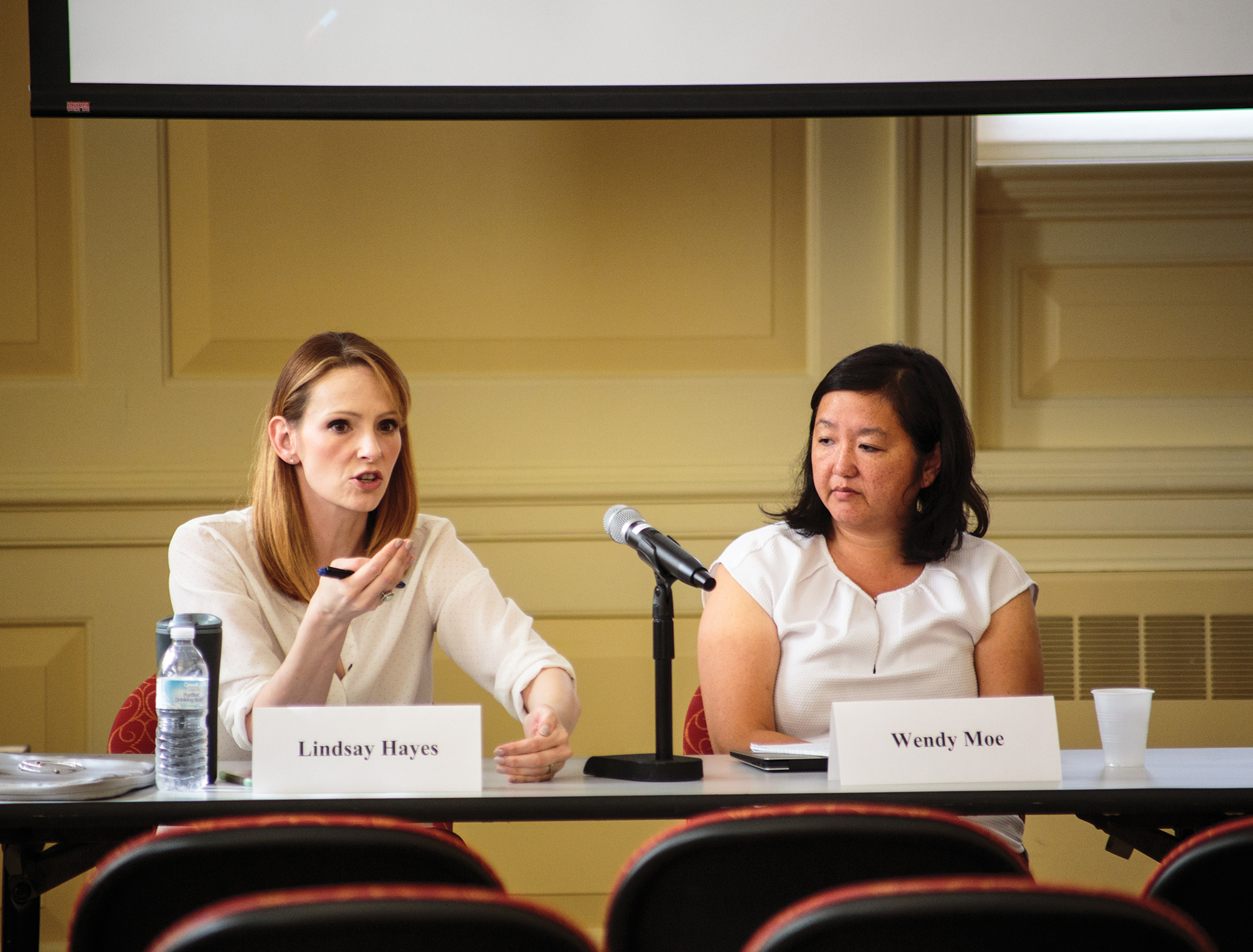By Carrie Snurr
For The Diamondback
Lindsay Hayes worked as the speechwriting director for the 2012 Mitt Romney-Paul Ryan campaign and as a traveling speechwriter for 2008 vice presidential nominee Sarah Palin.
But this election cycle, Hayes said, she’s found she has “a lot more in common when I talk politics with my friends who are Democrats.”
Three University of Maryland professors joined Hayes in McKeldin Library on Wednesday for a discussion on how different the 2016 presidential race has been from past election cycles, and the way social media has impacted the election.
The panelists told a group of about 50 people that Donald Trump’s presidential campaign completely altered their previous research into how social media relates to the way campaigns interact with the public.
Trump has become known for his early-morning Twitter sprees, including several 3:40 a.m. tweets slamming debate moderator Megyn Kelly and a 5:30 a.m. call for America to “check out” a former Miss Universe’s sex tape.
Professor Shawn Parry-Giles said social media fosters the use of repetition, which can make voters think a certain way.
“He can constantly call Hillary Clinton a liar,” she said. “He has gotten the repetition down. He says, ‘She lies, she lies, she lies.'”
The panelists also discussed the way Trump’s campaign has appealed to people in poorer areas of the country.
“[Trump] provides a sense of hope [to those] who feel like they have nowhere else to turn; there are huge Trump signs in the most economically poor areas of the country,” Parry-Giles said. “He might bring them economic advancement, and if that can happen then that’s all they care about. They ignore everything else.”
Professor Sarah Ann Oates said there is a lot of negativity in this election. Many people are voting for one candidate because they can’t stand the other candidate, she said.
“We’re not being driven by affection,” she said, adding that there has been growing anger directed toward Clinton since she served as first lady.
Parry-Giles spoke about her research on the way Clinton speaks and how her tone has changed through the various roles she’s had as a first lady, senator and secretary of state. Parry-Giles also compared Clinton’s style to Trump’s.
“She tends to address the audience more than he does,” she said. “Trump uses more first person language, which is not that surprising.”
Hayes said she decided in 2012 not to work as a speechwriter during this election. But she did agree to work as a contractual worker, assisting the Republican party with talking points for television appearances.
She said she knew she could not support Trump when she saw there were no policies laid out for her to write talking points on.
Hayes predicted Republican women will be a key vote in this election, as there has been dissonance in the party regarding Trump’s comments about women. Some Republican leaders have retracted their endorsements after a leaked 2005 tape showed Trump bragging in lewd terms about groping women, but many others have stuck by the nominee.
“It was interesting to hear when she decided she wouldn’t vote for Trump,” said freshman economics major Nora O’Reilly, “and her views as a speechwriter on social media.”



